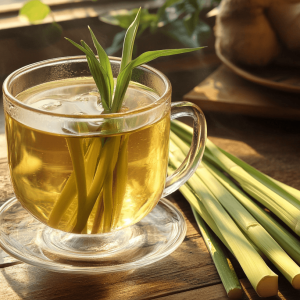
Watermelon juice is refreshing, hydrating, and packed with essential nutrients, while ginger adds a powerful kick with its anti-inflammatory and digestive benefits. Together, they create a delicious and nutritious drink. Here are 7 reasons why you should add watermelon juice with ginger to your daily routine.
1.Hydrates and Replenishes Electrolytes
Watermelon is made up of over 90% water, making it a perfect hydrating beverage. It’s especially beneficial in hot weather or after a workout. Adding ginger not only enhances the flavor but also helps maintain electrolyte balance due to its natural minerals.
Why It Matters:
Keeps you hydrated while replenishing lost fluids.
Helps restore electrolytes, preventing dehydration and muscle cramps.
2.Rich in Antioxidants
Watermelon is a great source of antioxidants like vitamin C and lycopene, which help fight free radicals in the body. Ginger is also rich in antioxidants like gingerol, which has potent anti-inflammatory and protective properties.
Why It Matters:
Boosts your immune system and protects your cells from oxidative stress.
Helps reduce the risk of chronic diseases, including heart disease and cancer.
3.Supports Heart Health
Both watermelon and ginger support heart health in different ways. Watermelon contains citrulline, an amino acid that can help lower blood pressure and improve circulation. Ginger, with its anti-inflammatory properties, helps maintain healthy blood vessels and lowers the risk of heart disease.
Why It Matters:
Lowers blood pressure and improves blood flow.
Reduces inflammation, supporting overall cardiovascular health.
4.Promotes Healthy Digestion
Ginger has long been known to help with digestion. It reduces bloating, gas, and nausea, and stimulates the digestive system. Watermelon’s high water content aids digestion by helping break down food more easily, preventing constipation.
Why It Matters:
Relieves indigestion, bloating, and nausea.
Supports regular bowel movements and overall digestive health.
5.Aids in Weight Loss
Watermelon juice is low in calories but high in water content, making it a perfect weight-loss drink. Ginger helps by boosting metabolism and reducing appetite. Together, they make a refreshing drink that keeps you full and satisfied while helping you maintain or lose weight.
Why It Matters:
Curbs appetite and keeps you feeling full longer.
Enhances fat burning and metabolism for weight management.
6.Reduces Muscle Soreness
Watermelon, particularly its citrulline content, has been shown to reduce muscle soreness after exercise. Ginger has anti-inflammatory properties that can further help relieve post-exercise discomfort, making this juice an excellent post-workout recovery drink.
Why It Matters:
Reduces muscle soreness and speeds up recovery after workouts.
Helps with inflammation and joint discomfort.
7.Boosts Skin Health
Watermelon is high in vitamin A and vitamin C, which are important for skin health. Vitamin C boosts collagen production, while vitamin A helps with skin cell regeneration. Ginger’s anti-inflammatory properties can help clear up skin and reduce acne.
Why It Matters:
Improves skin elasticity and fights signs of aging.
Promotes clearer skin by reducing inflammation and promoting healthy skin cells.
How to Make Watermelon Juice with Ginger
Ingredients:
2 cups of fresh watermelon (cubed)
1 teaspoon of grated fresh ginger
Juice from 1 lime (optional)
Ice cubes
Instructions:
Add the watermelon cubes and grated ginger to a blender.
Blend until smooth.
Strain the juice to remove pulp (optional).
Add a squeeze of lime for extra flavor.
Pour into a glass with ice and enjoy!
Watermelon juice with ginger is a powerhouse drink that not only hydrates and refreshes but also offers a multitude of health benefits. From heart health to digestion, weight loss, and glowing skin, this simple yet nutritious drink should become a part of your daily routine.
Pigweed, also known as amaranth, is a nutrient-dense plant that offers various health and agricultural benefits. Here are 10 benefits of pigweed: Rich in Nutrients: Pigweed leaves are packed with vitamins (like vitamins…
Mimosa pudica, also known as the “sensitive plant” or “touch-me-not,” is a fascinating plant known for its ability to fold its leaves when touched. Beyond its unique characteristics, Mimosa pudica has a long history of…
Goosegrass (scientific name Galium aparine), also known as cleavers, stickyweed, or catchweed, is a common wild herb with a variety of medicinal uses. Often considered a weed, goosegrass has been used for centuries in…






